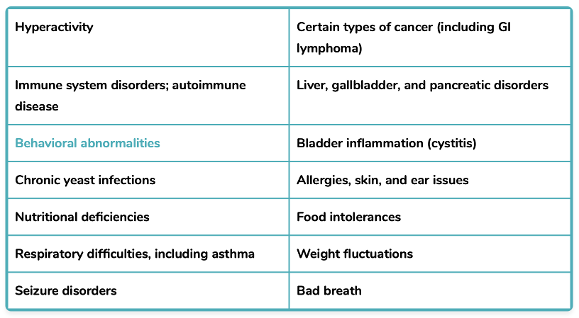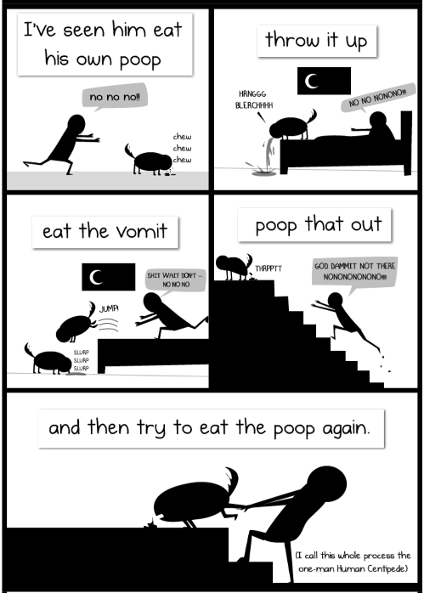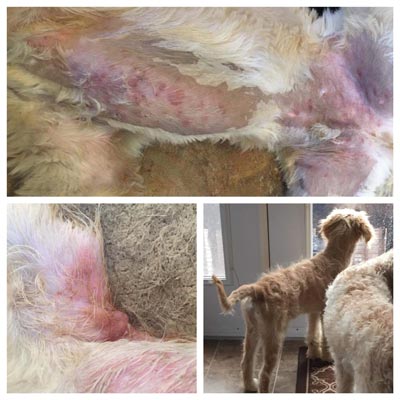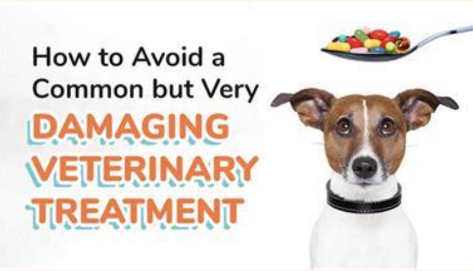Does your dog eat poop? Does your dog have allergies, autoimmune disease,
a sensitive stomach, or behavioural quirks?
What exactly can gut microbes have to do with this… as it turns out, A LOT!
-OVERVIEW: THE GUT MICROBIOME (what we wish we knew ages ago)-
-90% of your dog’s immune system is in his gut … yet traditional veterinary medicine often does not support a healthy gut biome, but instead reacts when acute or chronic conditions arise.
For those readers who are already thinking ahead to probiotics, which many people are familiar with, we have recently learned that probiotics alone are not enough to compensate when entire bacterial families have been lost. To do that, you need fecal transplants to heal dogs from the inside out.
You just can’t make this $h!t up… and trust me, there are more punny jokes where that came from! So if you are easily grossed out, this article may not be your favourite. But it is an important part of our quest to support the holistic health of our dogs, and we encourage you to read on.
-OUR EXPERIENCE-
We began by testing a sample group of dogs, mainly labradors, comparing their clinical symptoms and their unique gut bacteria balances (or rather, imbalances as it turned out). We were skeptical at first, but it seemed like a simple and minimally-invasive treatment, and was touted to offer many benefits for an array of health conditions. In our spreadsheet, we began to witness undeniable patterns of clinical issues and bacterial imbalance… in all cases, these dogs were missing entire groups of bacteria that are present in most healthy dogs.
We were confused when we heard that probiotics are not the answer for very problematic dogs
We learned that feeding a dog probiotics, when that dog is missing an entire family/strain of health bacteria, is akin to watering a garden without having planted any seeds. You must first re-introduce the “seeds” of the biome prior to “watering” it.
“Your dog has a unique collection of thousands of different types of bacteria and other microbes (such as viruses, fungi, etc) in their gastrointestinal tract, referred to collectively as the gut microbiome. A healthy microbiome is crucial for your dog’s overall health, from nutrient absorption, to mental health. When bacteria become out of balance, they may contribute to the development of such disorders as inflammatory bowel disease (IBD), digestive issues, immune system reactions (allergies), diabetes, and even anxiety.” -Animal Biome
But what changes the biome, or causes the death of “good bacteria”? And what does that weird photo have to do with i?... that will hit you later on (or click on the photo for more terrible humour.)
“The primary cause of leaky gut (dysbiosis) in pets is overuse of antibiotics; other contributors include the administration’s of steroids, anti-inflammatory medications, oral flea and tick pesticides, advanced glycation end products, and parasitic infections.” -Mercola Healthy Pets
The classic GI-related symptoms of dysbiosis are gas, bloating and diarrhea. But here is a list of other symptoms and conditions that are also attributed dysbiosis:
Moreover, A new study published in the Journal of Veterinary Internal Medicine investigated the effects of the antibiotic metronidazole on the microbiome in dogs. The authors found that a 14 day course of treatment with metronidazole given to healthy dogs, resulted in significant changes in microbiome composition, including severely decreased amounts of a key beneficial bacteria, Fusobacteria. Even after 30 days post-antibiotic treatment, the dog's bacterial community had not recovered, and the canines were missing key family groups of bacteria necessary for healthy gut function.
In other words, once an antibiotic is given, the biome may be unable to recover naturally. Our understanding is that once gut biodiversity is lost, it is generally just a matter of time before diseases begin to manifest.
For Example - We learned from our own testing with Animal Biome that Clostridium (a group of bacteria) actively fights pathogens, prevents leaky gut syndrome, and reduces food sensitivities and allergies. Interestingly, in our study group, ALL of the dogs whose clinical concerns included food sensitivities or allergies had abnormally low or absent levels of Clostridium.
This was confirmed again in our minds when reading, “It is not surprising that researchers have documented vast differences in the microbiomes of dogs and humans who suffer from allergies compared to their healthy, allergy-free counterparts. They also documented significant differences in the intestinal microbiome of dogs who suffer from chronic or acute intestinal inflammation; there is a strong relationship between the health of a dog’s microbiome and risk for gastrointestinal disease.” -The Forever Dog p22

While mild allergies or GI upsets may seem less daunting than other severe and chronic disease, if the biome is out of balance, it is a warning sign you don’t want to miss. But the good news is, the biome can be fixed, and it is NEVER TOO LATE!
A $HI!TTY SOLUTION: “It takes GUTS to try something new” -Animal Biome
Let’s talk about fecal transplants. When we use the term “transplant” we mean either an enema transplant performed by a veterinarian, or a full course of encapsulated poop pills, which you can administer yourself. Although hugely beneficial for your dog’s holistic and long-term health, neither type of fecal transplant is particularly invasive or expensive, considering the alternatives.
“If your pet is having issues with their intestinal tract, fecal transplants may be used to help treat gastrointestinal infections, bacteria depletion from antibiotics, and other conditions such as chronic constipation or diarrhea, inflammatory bowel disease, small intestinal bacterial overgrowth, hemorrhagic gastroenteritis, as well as pancreatitis, renal and liver disease, allergies, autoimmune issues and even cancer and behavior."
-Microbiome Restorative Therapy
It is a bit ironic to think that, after all these years of scooping many tonnes of dog poop, we are now purchasing it (and very happily, considering the phenomenal results).
Even more embarrassing, after decades of scolding our dogs away from coprophagia (eating poop), we’re now actively encouraging it. We’ve gone from “No! No! No! SPIT THAT OUT!” to “Would you like a sprig of alfalfa sprouts, or a dusting of probiotics on that fresh turd nugget, my darling furry-composter?”
Jokes aside, we don’t actively encourage our dogs to eat poop for many reasons, but we do encourage people to do more research on the canine biome transplant options, especially if a dog has any of the aforementioned symptoms AND they obsessively eat poop.
-ORAL TRANSPLANT VS ENEMA TRANSPLANT-
In our own ongoing study, we began to wonder if the live transplant option would suit large-breed dogs better than the oral transplant. While we saw some large dogs improved slightly with one bottle of pills, the small-breed dogs in our experiment improved dramatically with the same bottle. As such, we are suspicious that the live transplant regime may be more beneficial to our larger breeds, but we haven’t yet had the opportunity to test this further.
(Note: oral transplant pills may be just as effective in large-breed dogs as well, but the dose required may become cost prohibitive compared to enema transplants)
Most encouraging to us with pill transplants…was watching to progress of a 13 year old small-breed dog. She had chronic skin issues since her first surgery six years ago, and was also a persistently picky eater. While some her symptoms had been marginally improved with other treatments, she made a complete and full recovery at 13 years of age after only one bottle of fecal transplant pills. Morever, upon retesting, she now has a balanced and healthy gut biome, she behaves like a much younger dog. She is dramatically less neurotic, eats with gusto for the first time in her life, and plays vigorously! We only wish we had found this solution for her sooner.
Most encouraging to us with enema transplants…In February 2021 we sent out a newsletter that talked about our interest in the canine microbiome, and were contacted by a family with a 3-year-old dog, who they described as having a “diabolical microbiome.” She was a sickly dog, who had been on many major medications that had dramatic negative side effects. We did a biome test on her while they concurrently contacted a local integrative veterinarian for a live fecal transplant. After only two treatments, this beautiful dog is finally medication free and completely healthy! Great things can come through collaboration, and we are SO grateful to her family and her veterinarian for working with us and making this transformation possible.
We are trying to keep a level head, and not get too excited, but we have seen some several dramatic transformations already, and are eager to see more. While we still have so much to learn, and this is only anecdotal evidence at present, we believe stories like these can encourage other dog owners to try something novel that may really help their dogs.
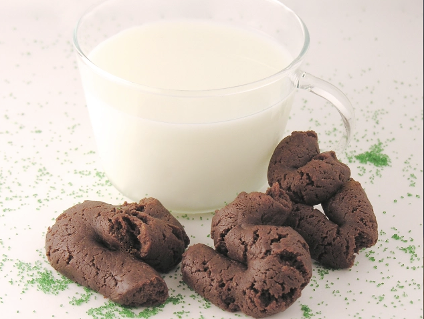
So if your dog is presenting with the symptoms addressed earlier in this article, you may be able to find a “bandaid fix” solution through medications and injections. But what if your dog’s gut biome is imbalanced, and you do not address it? If a medication only alleviates symptoms but does not address the underlying cause, the body will remain at a higher risk of more serious chronic diseases.
Perhaps after reading this far you feel as we do, frustrated that most of the veterinary community has very little knowledge of the canine gut biome; Namely, how to assess it, how protect it from pharmaceutical interventions, and how to restore it when it is becomes imbalanced. Just like human medicine, veterinary medicine is typically a reactive model, and in our opinion, vets are overworked and often underpaid people who are nothing short of superheroes. Society expects the same doctor to know as much about a house cat, as they do about a cow, a pig, a bird, or a dog, from their medications to their nutrition, to diagnostics and surgeries … there is nothing remotely equivalent in human medicine. So treat your vet with some grace, but don’t be shy to share with them what you’ve been researching in case they’re interested too!
Did you find a typo, or have a question, comment, or suggestion that can help us learn too?
Or maybe, you just want to brag that you actually read all the way through this enormous page, and the wacky photo at the top made you laugh so hard you nearly pooped yourself ;)
We would love your feedback!
-WHAT'S NEXT?-
Hypothetically, once we’ve balanced the microbiome … then what?
Do you have GUTS to try something new with us, or want more info?

The Biome’s Worst Enemies?
-Metronidazole, a very common antibiotic prescribed when your pet experiences digestive upset. https://shop.animalbiome.com/blogs/pet-health/metronidazole-for-dogs-what-you-need-to-know
-Chemicals (household cleaners, lawn treatment, cosmetics)
-Pharmaceuticals
-High starch or carb-rich Diet
-Obesity (lack of exercise)
The Biome’s Buddies:
-Fecal Transplant (oral/pill or live/rectal, perhaps depending on breed/size/condition?)
-PRObiotics
-PREbiotics
-POSTbiotics
-Fresh foods
-Exercise
-Microbes (found in dirt and soil)
Don’t Just take our word for it! Here is more reading:
https://healthypets.mercola.com/sites/healthypets/archive/2015/12/13/fecal-transplants.aspx
https://microbiomerestorativetherapy.com/articles
https://microbiomerestorativetherapy.com/articles/f/feed-your-dog’s-microbiome-not-just-your-dog
https://pubmed.ncbi.nlm.nih.gov/32469869/

